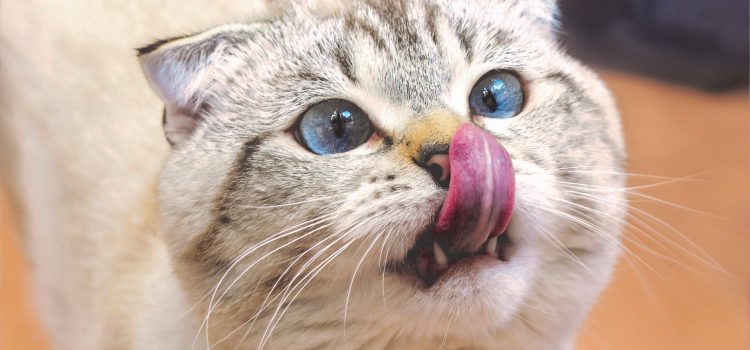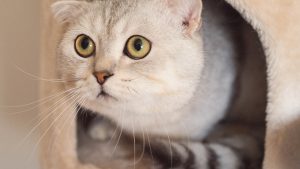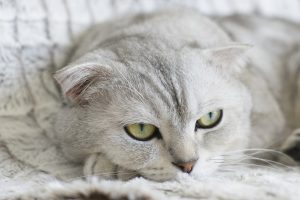
Scottish Fold Diseases And What You Can Do About It

There are many different diseases that Scottish Fold cats can be affected by. Some of these diseases are genetic, and external factors cause others.
You should take your cat to the vet, who can diagnose it and provide you with the proper medication.
You can also research some of the different diseases that Scottish Fold cats can suffer from and find out what you can do about them.
There are two types of Scottish Fold cats: the original breed, called the “homozygous” or “genetic” type, and a mixed breed, called the “heterozygous” or “hybrid” type.
From birth, the genetic type has a folded ear. The hybrid has an upright ear. Scottish Fold Cats can suffer from herniated disk disease.
– Hypothyroidism
– Cataracts in Children Otitis externa Tracheal Segment Dysplasia Cataract or eye surgery;
lymphocytic leukemia – FLUTD (Feline Lower Urinary Tract Disease);
– CRF (Chronic Renal Failure);
– Cryptorchidism;
– Proteinuria Epilepsy is one of the diseases that Scottish Fold cats can be afflicted with. This can cause seizures and make it difficult for your cat to walk or stand, making it very difficult for them to eat and drink.
You should also ensure that your cat is up-to-date with all its vaccinations and seek advice from your vet if you are concerned about any unusual behavior.
Remember that Scottish Fold cats may also suffer from “wobbler syndrome.” If a cat has this, it may suffer from hind leg weakness and a wobbler (a condition where the spine is curved as it exits the body).
The tail may also be deformed. Any major kennel clubs do not recognize the Scottish Fold breed. Many breeders in Europe and Asia still produce this breed, but they are not recognized as one of the British breeds of cats because they are genetically different their ears are folded from birth instead of standing up like those of other breeds of cats.
Keep Your Scottish Folds From Feline Calicivirus
Disease Name: Feline Calicivirus
The feline calicivirus is a virus that affects the respiratory system of cats. Cats can contract the virus by coming into contact with an infected surface, such as a contaminated litter box, or by coming into contact with another cat who has the virus.
Cats usually show signs of the virus within one to two weeks after exposure. These signs can include fever, sneezing, and a runny nose. The severity of the symptoms varies from cat to cat but may also include coughing and wheezing.
To prevent your cats from contracting this virus, you should ensure that your litter box is clean and that you use different litter for each cat so as not to spread germs or bacteria. You should also keep your cats indoors when possible and avoid letting them come in contact with other animals that may be carriers of the disease.
Bilberry is a fruit that has been used for centuries for its health benefits, including cancer treatment. The fruit can also be used to treat colds and as an appetite stimulant. Bilberry is known to have antioxidant properties that help fight free radicals and prevent cancer from forming.
It can support immune system function and reduce catarrhal symptoms in cats with upper respiratory tract infections, such as colds, congestion, and inflammation.
.
Rhinitis: A Common Infection of the Nose
Rhinitis is a common infection of the nose. Congestion, a runny nose, and sneezing characterize it. The most common cause of rhinitis is a viral infection. Other causes include allergic reactions to certain substances, such as pollen or dust mites, and exposure to irritants, such as smoke or chemicals.
The most common rhinitis symptoms are nasal congestion (either mild or severe), a runny nose, and sneezing. Other symptoms may include tearing, headache, sore throat, and fever. If a person is experiencing signs of an allergic reaction, such as wheezing and difficulty breathing, it is recommended that they seek medical attention.
A viral infection or exposure to an irritant such as smoke or chemicals can cause rhinitis. Less commonly, it can be caused by an allergic reaction to certain substances, such as pollen or dust mites.
The most common cause of rhinitis is a viral infection, followed by allergic reactions to substances such as pollen or dust mites and exposure to irritants such as smoke or chemicals. Less commonly, it can be caused by an allergic reaction to certain substances, such as pollen or dust mites.
The virus most commonly responsible for rhinitis is the human rhinovirus (HRV), which infects the membrane lining the nose and causes infections called colds.
Common rhinovirus infection symptoms typically occur 1-3 days after exposure to the virus and include sneezing, watery eyes, a runny nose with some discharge, and a headache. These symptoms also occur in allergic reactions to pollen or dust mites.













Comments
Dog Coughing and Gagging: Causes , Symptoms and Treatment Options
Scottish Fold Cat: A Breed’s Most Famous Gene is the Reason They’re Resilient to Fatal Diseases
Facts about Dogs and Which of Them Are True
Butter Corn Snake : Ultimate Care,Feeding PRO TIPS